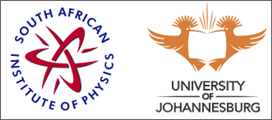Speaker
Level for award<br> (Hons, MSc, <br> PhD)?
PhD
Apply to be<br> considered for a student <br> award (Yes / No)?
No
Abstract content <br> (Max 300 words)<br><a href="http://events.saip.org.za/getFile.py/access?resId=0&materialId=0&confId=34" target="_blank">Formatting &<br>Special chars</a>
The goal of high-energy nuclear physics is to create and study quark-gluon plasma (QGP), the predicted deconfined state of QCD matter at energy densities greater than ~1 GeV/fm^3 that permeated the universe a microsecond after the Big Bang. Contrary to original expectations, the properties of the QGP seem best described by the strong-coupling, phenomenological string theory methods of the AdS/CFT correspondence instead of the usual weak-coupling, Feynman diagram methods of perturbative QCD (pQCD). In particular, the AdS/CFT paradigm predicts a very small value for the viscosity to entropy ratio of the QGP, in remarkable agreement with data collected from the Relativistic Heavy Ion Collider (RHIC) and the Large Hadron Collider (LHC). In search of a consistent description for all observables related to QGP, we extend the AdS/CFT theory to that of high-momentum probes of the plasma and compare our results to data from RHIC and LHC.
Would you like to <br> submit a short paper <br> for the Conference <br> Proceedings (Yes / No)?
yes
Main supervisor (name and email)<br>and his / her institution
W. A. Horowitz, wahorowitz@gmail.com
University of Cape Town

